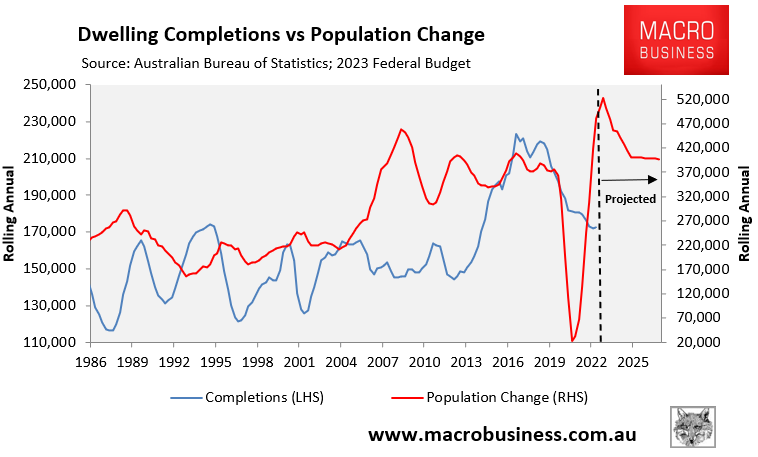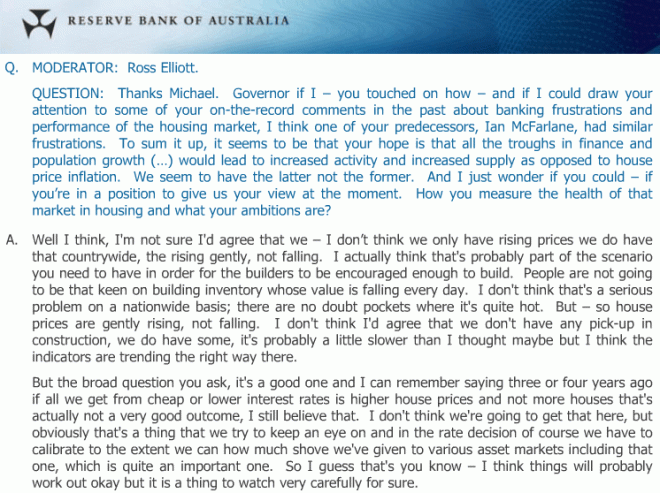The Greens are a fake environmental party but they are starting to appear more real in terms of being left-wing.
The core hypocrisy of The Greens is its support of mass immigration despite the obvious deleterious impacts it has on the environment, worker living standards (houses, wages, crushloading) and emerging market development.
But if we ignore this for a moment, and focus on The Greens’ response to the housing problem of their own making, the policy platform does appear closer to socialist politics.
On Monday the Greens voted with the Coalition to delay consideration of Labor’s $10bn Housing Australia Future Fund (Haff) until 16 October, despite pressure from housing groups to pass the bill after the government pledged $2bn of direct funding for social and affordable housing.
The Greens and Coalition teamed up again on Thursday to establish the inquiry, which will provide an interim report by 23 September to provide input into the national cabinet process considering renters’ rights set up by the Albanese government.
The inquiry will consider rising rents and rental affordability; supply and demand; actions that governments can take to reduce rents or limit rent rises; and “improvements to renters’ rights”, including rent control, length of leases and no-grounds evictions.
…The Greens have rejected calls to pass the Haff, arguing that despite securing $2bn of direct funding for social housing it must use the bill to prevent “unlimited” rent rises.
That is, The Greens want to build more public dwellings and wish to freeze private rents. This appears to be central planning par excellence.
But is it and what will it achieve?
I have already discussed at length the likely outcome of this. We need more than one million homes over five just to keep pace with The Greens’ population lunacy, its improved HAFF would deliver a lousy 70k of those.
So, The Greens are relying on the private sector to deliver 93% of the required dwellings just to prevent their housing shortage from getting worse.
This is where The Greens’ half-baked central planning runs into more trouble.
We know from experience that so long as you keep the demand pump primed via immigration, rent freezes will only delay price rises and reduce spending by landlords, damaging the rental housing stock.
Less understood and worse is the impact of rent freezes on supply inelastic housing markets like Australia’s which operate on boom and bust cycles for both income and capital values.
Capping rents will disrupt this dynamic by delivering a major price signal to the housing market not to build further rental stock.
Because the price interference comes from the government, the supply stall will intensify owing to policy risk.
A discussion from 2013 with RBA governor Glenn Stevens is useful. When Australia faced a similar deteriorating economy, with quantitative peopling in full roar and housing shortage in prospect, the RBA saw things this way:
Glenn Stevens was right. Rising prices did ultimately trigger a supply explosion, too late and poorly built but, at least, delivered:

Private markets need the price signal to move. If rents are capped, and capital values stall, there will be no housing supply boom.
Don’t get me wrong. I am not arguing that these circumstances are ideal. Far from it.
What I am saying is that the reality on the ground makes The Greens’ policy solution to their own housing shortage completely counter-productive.
As their housing platform is currently constituted, pressure from immigration will pump prime demand forever while rent freezes retard supply, and public sector construction remains woefully inadequate.
Anyone that has visited Europe’s eastern bloc cities knows that the one thing socialist states did well was to build infrastructure to house workers and to deliver them to the factory.
Conversely, The Greens’ woke socialism is a recipe for a homelessness catastrophe.


